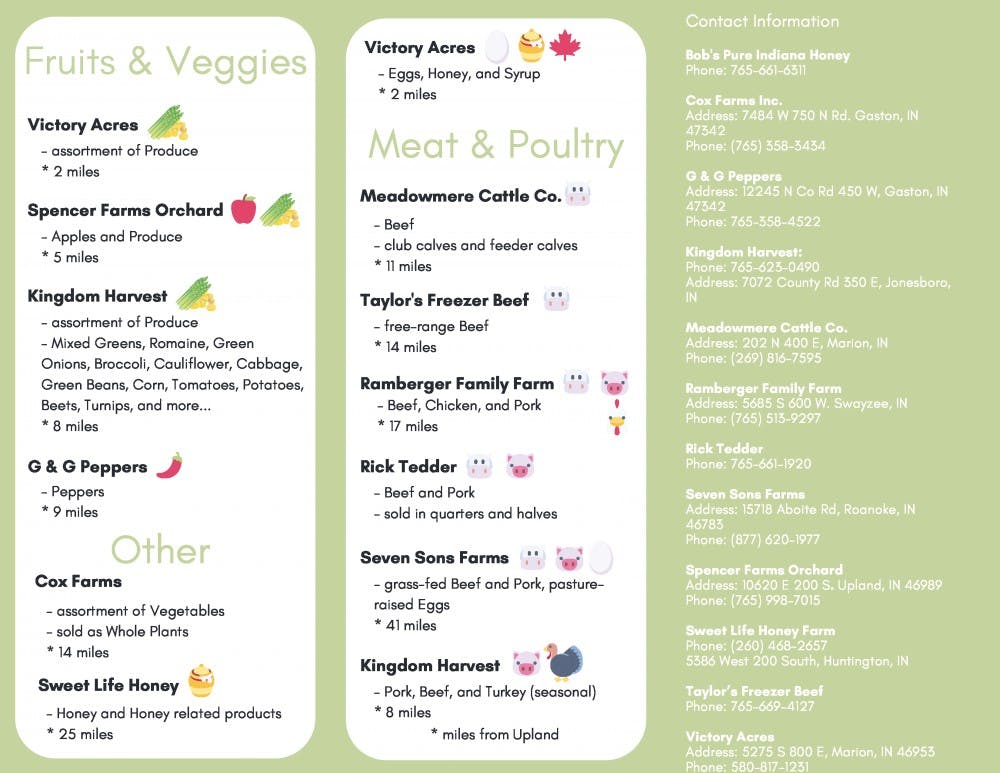Abigail Roberts | Echo
Buying local, farm-grown meat and produce for many students may seem like a worthy but impossible commitment, but Micah Stewart ('19), Rob Reber, assistant professor of environmental science, and local Upland farmers think otherwise.
Imagine you're in the process of buying a car. You research car models, sellers and payment plans. You learn about checking mileage, what goes on under the car's hood and how important the condition of its breaks are. Your goal is to buy the best car for the best value.
"There are so many things in life when we want to buy them, we buy the best things (like cars computers, cell phones)," Stewart said. "Food is just as important . . . Food affects our minds and souls and bodies and its effects last the rest of our lives. That's why I choose to spend more money on it."
Stewart believes that voting with your wallet, where your money goes, matters. He uses an app called Boycott where users input different campaigns like ending animal testing, human trafficking or deforestation. Boycott then scans product barcodes to suggest whether consumers should buy based on their beliefs.
Reber and Stewart also consciously find ways to support local farmers.
"It takes effort to seek out those that are local, it's easy to run to the store get our stuff and it's done," Victory Acres farm manager Martin Hunt said. "If you want to buy local you may have to look for it . . . but I think it's important that we do because knowing your farmer and knowing where you're getting your food is really important."
There's reassurance in knowing you're giving back to your community by supporting your neighbors, not a CEO.
Practical steps we recommend:
-Buy the least processed foods: set an ingredient limit and stick to it
-Buy raw, whole foods as much as possible to avoid packaging (potato vs. bag of frozen pre-cut fries)
-Reduce food waste by composting (keep a sealed bucket under your sink to collect food waste and compost or give it to your local farm)
-Search out your local food markets and Community Supported Agriculture producers (use the guide below) Upland's local food market begins June 19
-Learn about fruit and vegetable seasonality to reduce your carbon footprint (grapes don't grow nearby in the winter, shipping them from Chile uses a lot of gas and carbon fuel)
-Take one item from your Meijer grocery list and start buying it locally (read the list below for local products)
"One person can't do a lot, but at least we can do the right thing," Reber said.






